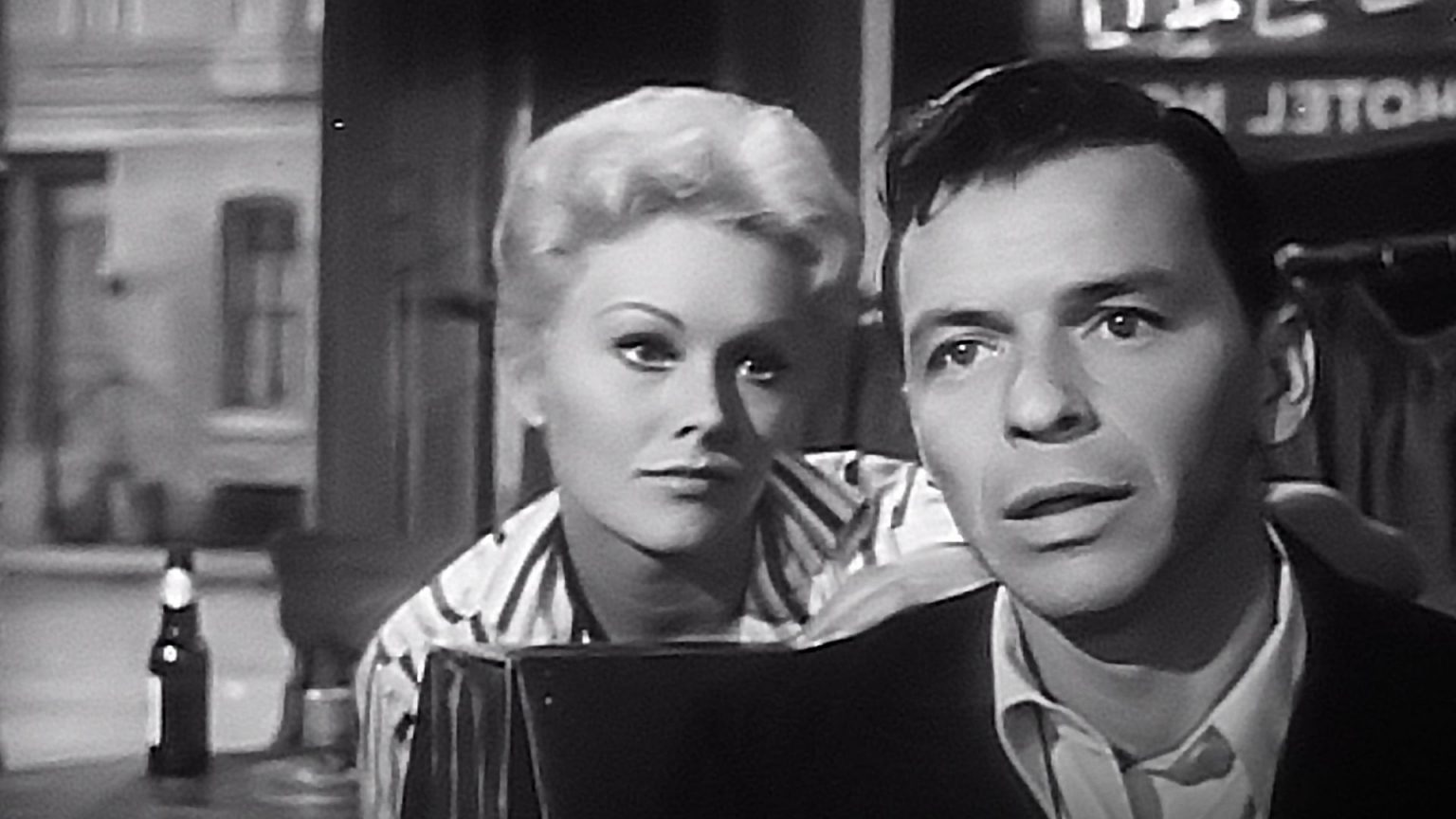Frank Sinatra’s film career is now remembered as secondary to his music career. But during the 1950s he was rated one of the best and most bankable actors in Hollywood, sometimes competing with Marlon Brando for roles. Brando had coveted the lead in The Man with the Golden Arm (1955), but according to legend it was Sinatra’s enthusiasm for the part that impressed director Otto Preminger. As Frankie Machine, Sinatra continued a spate of “little guy” roles that started with his Best Supporting Oscar turn as Maggio in From Here To Eternity, and his portrayal of a criminal psychopath in Suddenly. He’s still a small man at odds with his surroundings – in this case he’s a recovering drug addict – but this time he’s a fatigued hustler trying to outrun the phantoms of his past.
He begins and ends the movie strutting through the crowded, grim streets of his old neighborhood. As Frankie, returning from six months in rehab where he kicked his drug habit and learned how to play drums, he wears the world-weariness that was a trademark of his singing. This is understandable. His wife suffers from a mysterious illness, and jobs are scarce. He may wind up back in his old gig, dealing cards for illegal poker tournaments. Worse, the neighborhood’s heroin dealer lives right across the street from him.
It’s part of the movie’s charm that everything works against Frankie. His dreams of drumming in a big band are unlikely. His declaration that he’s going to remain clean sounds like empty talk, as does his distaste for the local drug lord, played with smirking zeal by Darren McGavin. Sinatra earned an Oscar nomination here, but others in the cast also leave a mark, including Eleanor Parker as Frankie’s cloying wife, Arnold Stang as the neighborhood stooge, and Kim Novak, in the movie biz for only two years but holding her own as kindhearted Molly, the only person who really supports Frankie. Sinatra and Novak purportedly had a romantic fling during the course of filming, and there is a warmth and chemistry in their scenes together. The scene where she comes home from her job as a cocktail hostess and finds him practicing his drumming in her apartment is about as close to a cozy home life as either has ever imagined.
The inner turmoil arising from Frankie’s constant failure is strikingly echoed by Elmer Bernstein’s crashing score. He uses screeching horns and rhythmic drums to define the hard life Sinatra is tough enough, but not wily enough, to endure. The trumpets match the torment in Sinatra’s performance, and that’s part of why this Hollywood plunge into such a seedy topic is still so entertaining. Brando might’ve been interesting in the role, perspiring and grunting during the “cold turkey” scenes, but it is doubtful he would’ve been any better than Sinatra. Could the larger than life Brando be a small guy fighting the odds? That was Sinatra’s game, and for a short time in the 1950s he was better at it than anybody.




